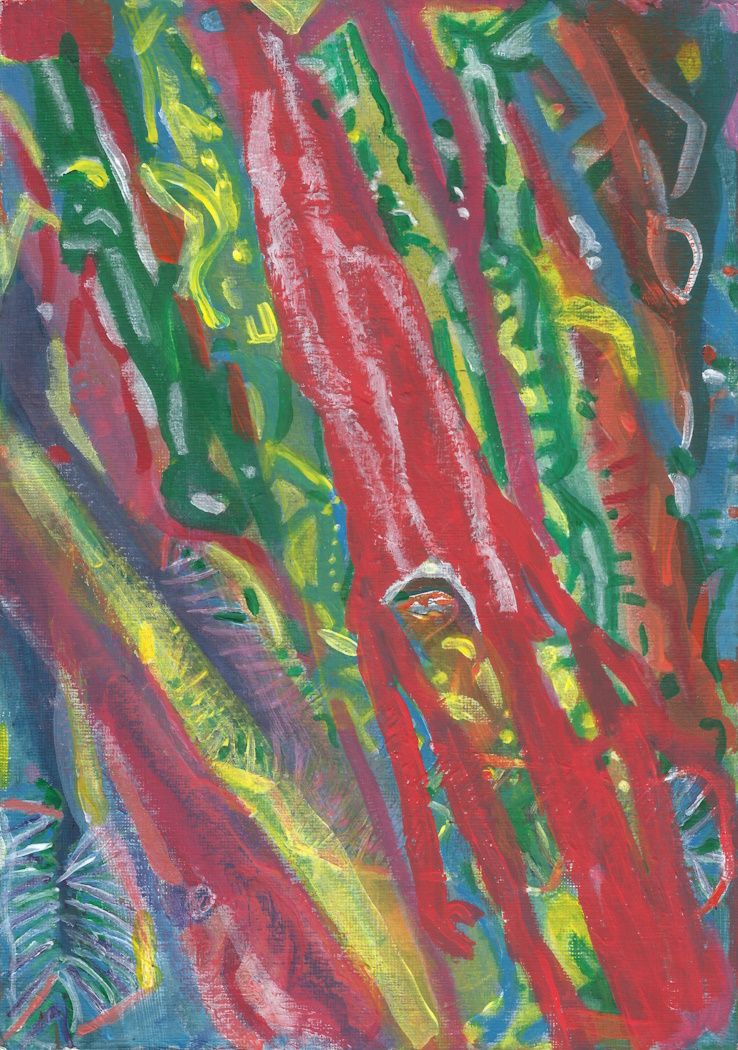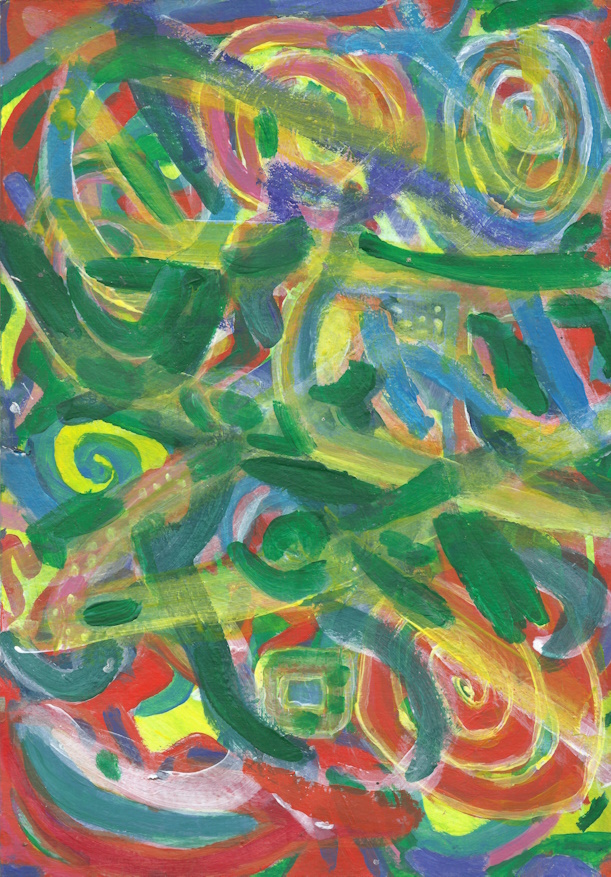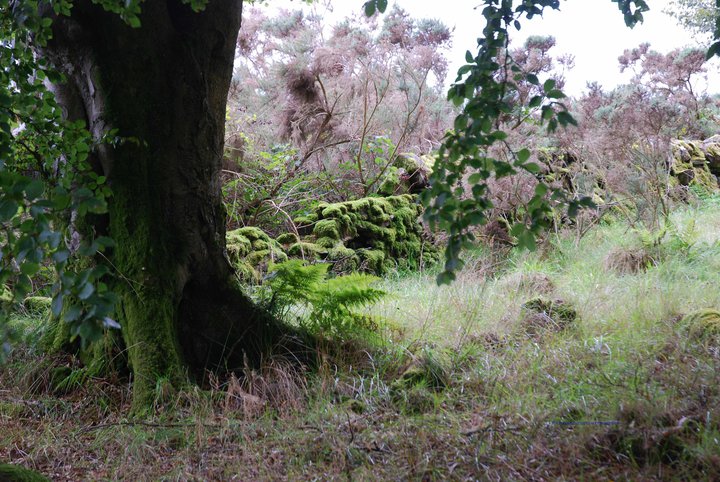Sati-sampajanna means mindfulness with clear comprehension (or knowing).
It is a useful exercise to practise while one goes about daily life. It can help calm and centre the mind and bring insight into dependent origination.
Basically, whatever activity one is engaged with becomes one's meditation.
One is aware of what one is doing, where one is. Of one’s behaviour, of that which is appropriate.
Aware of what is non-delusion. Abandoning the wanting, the angst, and the clinging.
Fully here in this present moment, with life as it is -- our dhamma teacher.
One can get into a light samadhi doing this. It can be a refuge from difficult thoughts and emotions. A way of releasing the past and the future by being fully present to whatever task one is doing here and now, without the self-centred dream blinding us to what is real.
There are many ways to practice this. Sometimes it's nice to have an expansive open awareness. Other times it's nice to keep attention fixed on one thing. Depends on the mood, and this is where one must use wisdom and discernment to know what is needed in each given moment. This wisdom and discernment grows with experience. We are all unique, we have all been conditioned differently, no two people are exactly the same. Each one of us must tweak the practice to suit us.
Try to find something in awareness that brings some relief to the mind, even if it just seems like small relief, stay with it, it will grow.
Each situation and circumstance are different. Different objects of meditation work better at different times.
For example, sometimes I will just stay with the feeling of my feet on the ground. When I first did this, the sensations in my feet were quite dull. But after many hours of practise, the soles of my feet have now become very sensitive to the point where I swear I can feel vibrations in the ground, can sense things I couldn’t sense before.
I also like the feeling of the whole body moving as one.
The feeling of movement, how the body feels when it is in motion.
Or the feeling in my hands when holding an object. Is it hot or cold, smooth, or rough, heavy or light etc...
I also like to pay attention to the feeling of the air element in the space immediately around me. Or remain centred with the breath, whilst also aware of everything else happening in peripheral awareness. Where I am, what I am doing.
Sometimes I like being anchored in the spine, that can feel very good. Or the top of my head, the face, the neck, the heart, the belly, the arms, the legs.
The touch of clothing on the skin.
The natural elements are great too. The solidity of earth. The fluidity of water. The cool invisible changing touch of air. The light and warmth of fire, the sun.
The expansive and open feeling of the space element.
The knowing of consciousness, of awareness itself.
Other times I will contemplate interdependence, change, impermanence.
Sometimes I will pay attention to two things at once, such as the breath in my belly and the breath in my nostrils at the same time. Or my feet and hands, or the air element around me as it touches the skin and the sensations in the body caused by breathing.
Sometimes I centre with the emotion of goodwill. With peace and calm. With equanimity.
It depends on what feels good at the time. Take any guidance and make it your own. Find what helps you. Each of us must be our own refuge.
It is not easy; it can be challenging to keep bringing the mind back over and over. One may sometimes need to talk oneself into doing it. Or use the voice of another if really stuck. Read a book, an article or listen to a dhamma talk.
Learn to recognise the hindrances when they are present in the mind: craving, ill-will, fatigue, worry, doubt.
Notice how we talk to ourselves, and how it feels when the hindrances are present in the mind. For me I start feeling unpleasant feelings and notice I am stressed, that for me is a clear sign I am absorbed in unwholesome thoughts. That craving is present in the mind.
During the day, notice if you are stressed. Pause and ask yourself, am I suffering? What is the cause of this suffering? What can I do to ease that suffering? What can I practise to bring relief?
Whenever suffering is present, the five hindrances will also be present.
Applied and sustained attention to something wholesome secludes consciousness from the five hindrances.
When the hindrances are absent, one will feel great relief. When that happens it can help to note how much better it feels when they are absent from the mind, this can help to train it to see the difference and become more willing to abandon unwholesome states of mind, knowing that they are causing suffering, and that it feels much better to let go of them.
Practising sati-sampajanna complements sitting meditation and makes it easier to transition from daily life to sitting, and from sitting to daily life. It keeps the samadhi going and keeps the sign of peace steady in the mind throughout the day.
Sometimes though I do like to think and ponder and reflect on things. Thinking isn’t wrong. It can be a helpful tool. The way we talk to ourselves is a powerful tool. We can talk ourselves into different states of mind.
It depends what mood I'm in. Thought can be used as a meditation object, and used to seclude consciousness from the hindrances by thinking on a topic that is wholesome and staying with that topic.
Repeating a mantra over and over can also do it, or singing, or chanting.
It is the seclusion from the five hindrances that's important. That's what leads to joy, serenity, unification of mind, and equanimity.
It is hard to put into words.
It is an embodied feeling. One is anchored in the body, the subtle body as it feels from within. There's a safe space in the centre of us that is empty. One can anchor the centre of awareness there and still be present to everything else happening, but free from it at the same time, not clinging, not affected negatively by the changing vicissitudes of life. It is the empty seat at the centre of one's being. The inner cave.
Why is it empty? Because there's nobody there. No person. No self.
One can see this directly by playing around with the six senses: sight, sound, taste, smell, touch, mind (thoughts, memories, and ideas).
Divide each sense impression up into three different parts.
1. The object being sensed.
2. The contact with the sense organ.
3. The sense consciousness that arises from that contact.
One can see dependent origination in this. Notice how sense impressions arise dependent on conditions, and when those conditions cease so do the sense impressions.
Am I the object being sensed?
Am I the contact at the sense organ?
Am I the sense-consciousness that arises from that contact?
When I touch an object, I feel sensations. When I stop touching that object the sensations cease.
When my foot touches the ground there are sensations. When the foot is lifted off the ground the sensations cease. Am I the ground? Am I the sensations? Am I the consciousness which arises whilst contact is made, then disappears after?
Am I the sights, sounds, tastes, smells, touches, the thoughts, and ideas?
Where do thoughts and ideas come from? Mostly from the world, from books, articles, podcasts, videos, the media, our memory of the past, from the people we associate with.
Am I any of those things?
Who is this ‘I’ ?
...


